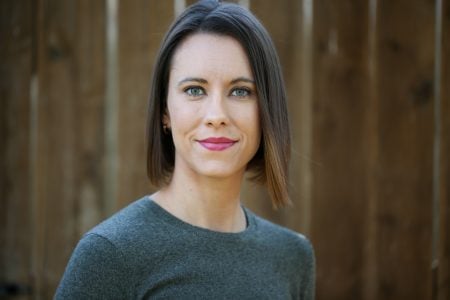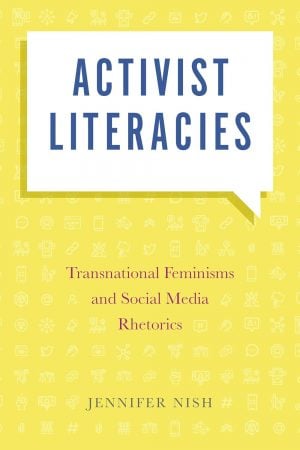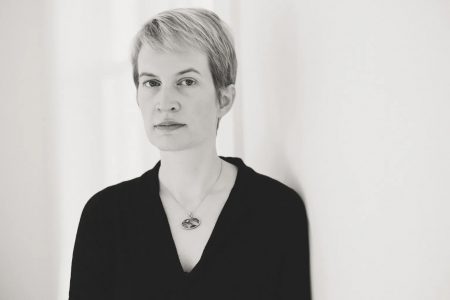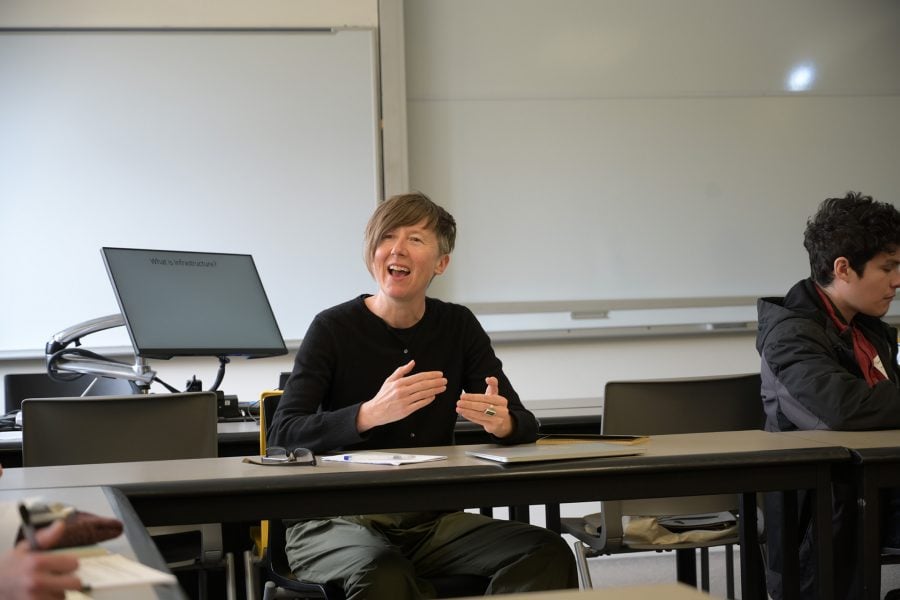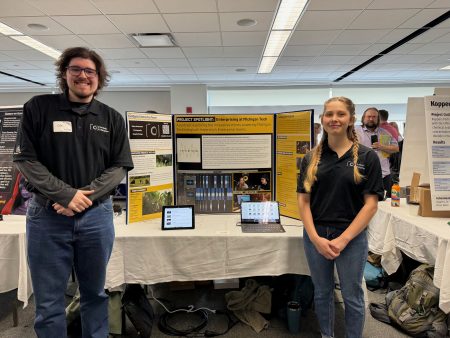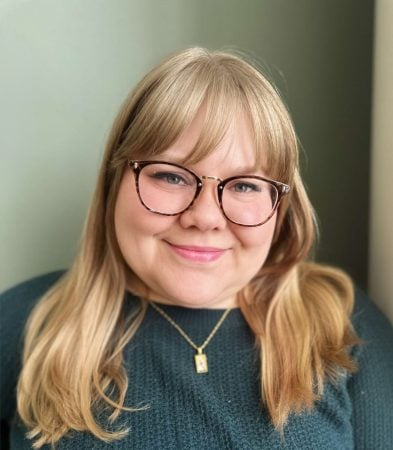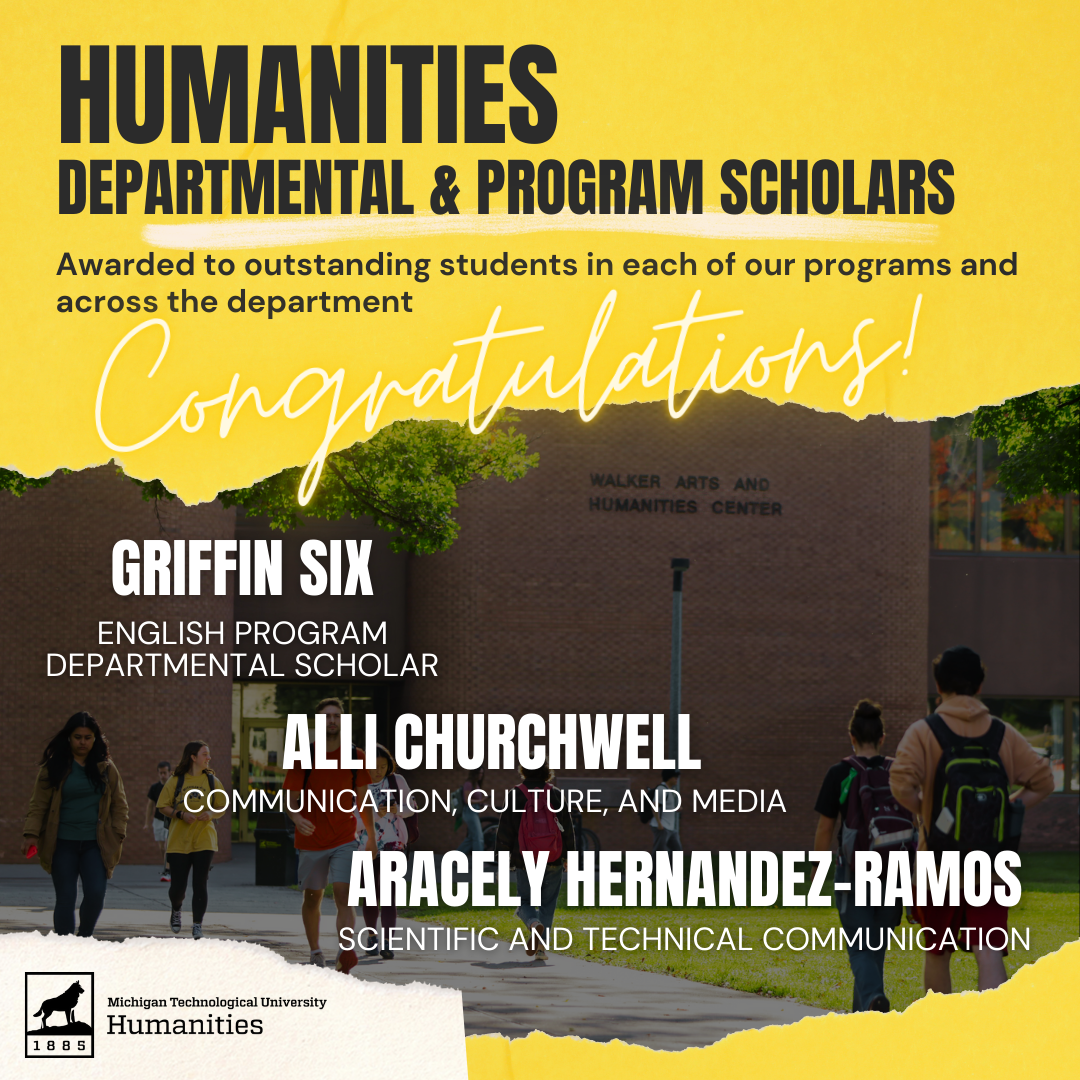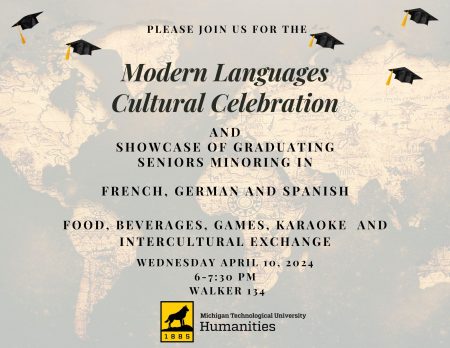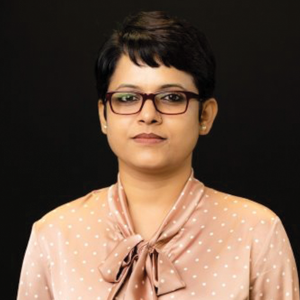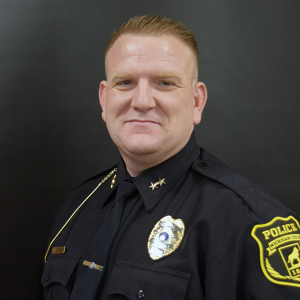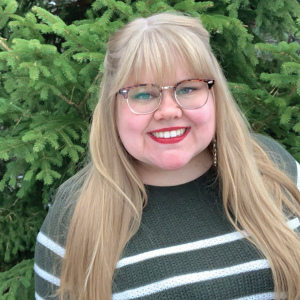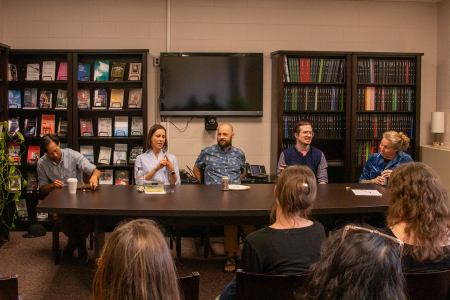
What:
A panel discussion featuring new tenure-track faculty hired in 2022/2023 to discuss the academic job market within the humanities, and their individual experiences with the academic job search that led them to Michigan Tech. Featuring Jason Archer, Richard Canevez, James Hammond, Holly Hassell, and Jennifer Nish.
Who:
Recent tenure-track faculty Jason Archer, Richard Canevez, James Hammond, Holly Hassell, and Jennifer Nish.
All are welcome to attend!
When:
Friday, September 22, 2023
Where:
Petersen Library, Walker Arts & Humanities Center
